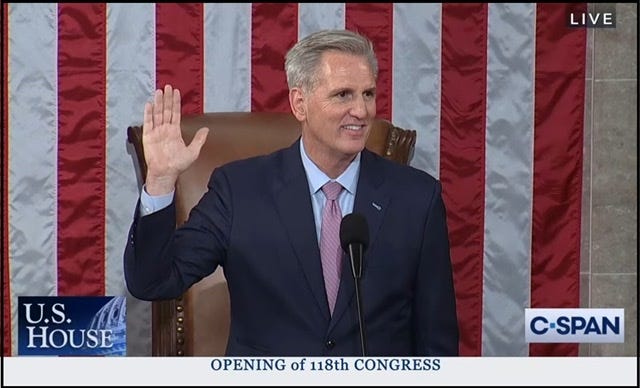News: America’s New Speaker of the House
Contested Rep. Kevin McCarthy of California elected as Republican Party leader
After 15 roll call votes in four days, House Republicans chose to elect California Congressman Kevin McCarthy as Speaker of the House, giving the Grand Old Party (GOP) an opportunity to reverse the Democrats’ historic expansion of the welfare, military and surveillance state within hours of his election.
Certain “Republicans, for example,” reported the Washington Post, which wrongly identified (later correcting) the new House of Representatives leader Kevin McCarthy as a Democrat, “have already expressed skepticism about reauthorizing … Section 702 of the Foreign Intelligence Surveillance Act [FISA], which expires later this year.” Of course, the Post padded the story with language that made ending the FISA’s unchecked authoritarianism seem like a dire threat to civilization.
That ending the arguably unconstitutional FISA—a surveillance state advancement e…
Keep reading with a 7-day free trial
Subscribe to Autonomia to keep reading this post and get 7 days of free access to the full post archives.




